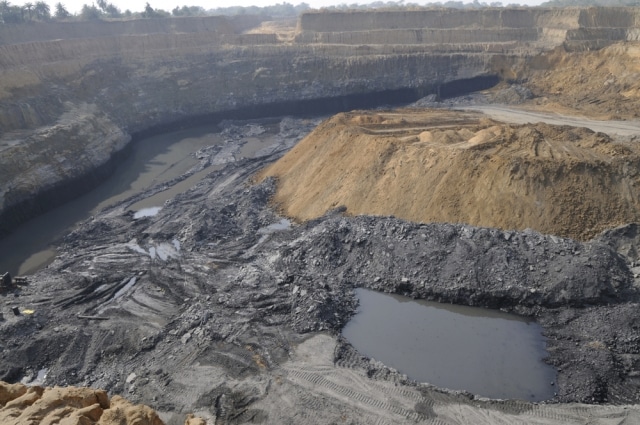The government of India still owns a majority share of Coal India Limited after selling off a 10% stake earlier this year to raise revenue. Now it’s looking to offload even more shares of the company to private investors — but critics of the company are warning that the company’s share price comes with ties to numerous unresolved environmental and human rights abuses.
Before any shares can be sold, the Indian government needs to hire someone to bring them to the market. Environmental and social justice activists have warned the banks that if they’re considering doing business with Coal India, they might want to familiarize themselves with the experiences of the last banks that worked with the company.
The banks that ended up marketing Coal India shares to investors for the sale earlier this year were Goldman Sachs, Bank of America, Credit Suisse, and Deutsche Bank, which insisted on a set of environmental and social safeguards as a condition of the deal. Coal India agreed, but does not appear to have followed through on those commitments.
Reports came in earlier this month that a company subsidiary is attempting to turn a protected tiger reserve into a coal mine. In February, barely a month after the sale of the shares was complete, another subsidiary began expanding a mine at the expense of a local community it didn’t bother to consult with first, according to Amnesty International.
Ben Collins of the Rainforest Action Network says these actions show the company doesn’t take its environmental and human rights commitments seriously, and that any bank helping sell shares of Coal India is buying into its abuses of human rights and the environment.
“The company has failed to follow through on its promises to improve on these issues and banks that claim to take environmental and human rights issues seriously have no business financing the company,” Collins told DeSmog.
He also pointed out that, on the eve of the critical climate talks in Paris this December, global leaders are increasingly calling for the phase-out of financing of high-carbon energy sources. “Financing a major coal mining company such as Coal India is simply incompatible with climate leadership,” Collins said, “especially now that some major banks are already taking public steps to cut financing for coal.”
Coal India is still 78.65 percent state-owned. The Indian government sold off an initial 10% stake in 2010 at the time of the company’s IPO, in addition to the 10% sold earlier this year. Now the government is looking to sell another 10% with an estimated worth of $3.6 billion.
The Indian government regularly uses sales of minority stakes in government-owned companies such as Oil & Natural Gas Corporation Ltd., Power Finance Corporation and Indian Oil Corporation to raise funds as part of a broader “disinvestment” plan. The final deadline for banks to submit bids for handling the latest sale of Coal India shares is September 23.
Coal India produced 494.23 million metric tons of coal last year, and has plans to double production to 1 billion metric tons by 2020. It is one of the largest coal companies in the world, with a market cap of nearly $40 billion.
The company’s checkered history is no secret. Amnesty International reported last year that a Coal India subsidiary was forcibly evicting Indigenous and Dalit families to expand one of its open cast mines.
Coal India specializes in open-pit coal mining, which entails clear-cutting forests, with all of the destruction to forest communities and wildlife that that involves. The company has a reforestation program meant to mitigate those impacts, but this past July an investigation found that half of the land Coal India claimed to have replanted with trees was still barren.
Image Credit: arindambanerjee / Shutterstock.com
Subscribe to our newsletter
Stay up to date with DeSmog news and alerts







